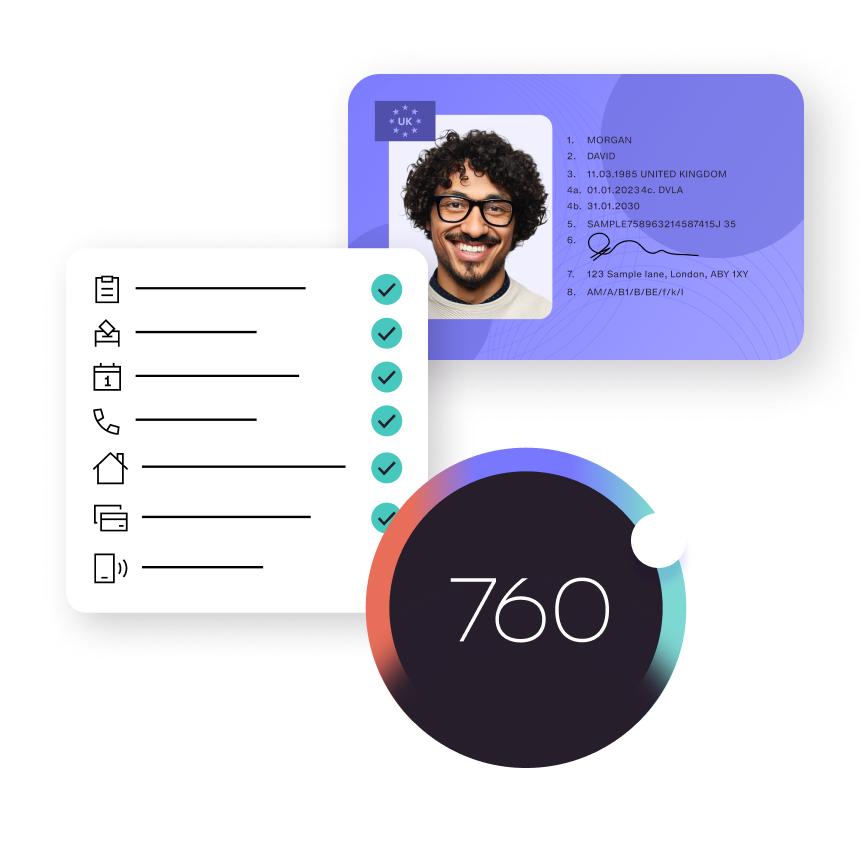
The importance of data diversity in building inclusive digital identity ecosystems
The importance of data diversity in building inclusive digital identity ecosystems
According to The World Bank, “foundational ID systems must be inclusive, and they must be trusted.” However, building identity ecosystems that are seamless, inclusive, and trustworthy is a complex task; diverse data is the pivot upon which trust turns.
In a digital world, citizens and consumers increasingly rely on the internet to access public and commercial services. Secure, straightforward transactions are essential, and good digital identity verification facilitates trust for everyone. For businesses and public services, a healthy identity ecosystem is critical for success; for individuals, it provides full participation in this world.
However, verified identity data is only sometimes equitable, and availability can be patchy. Understanding and leveraging identity data diversity is essential to building reliable, inclusive, and effective identity ecosystems.
“Confidence in data is not an on-off switch, but can be likened to a jigsaw puzzle, each piece adding more clarity to the final picture.”
The importance of data diversity for digital inclusion
Trusted digital identity depends on good quality, appropriate, accessible, and verifiable data. However, verifiable data is different across all countries. Some countries have rich and reliable data sources, while the digital identity ecosystem is poor in others. Therefore, recognising genuine customers is simple in some places and more challenging in others. Where identity data quality differs, it is critical that access can still be provided by building trust in different ways.
However, it is a challenge to identify which data sources are available and how they can be used holistically to build trust. For example, some countries, such as France, may have no credit reference data but excellent access to mobile operator data. At the same time, in the United States, the Social Security Number (SSN) is a helpful identifier. However, it's critical to understand the widespread nature of synthetic identity fraud.
Unfortunately, poor data diversity can impede user journeys with overly complex onboarding. Without understanding the implications of data diversity and how to correctly apply data, identity services can negatively discriminate and unfairly prevent people from accessing goods and services.
“Understanding and leveraging identity data diversity is essential to building reliable, inclusive, and effective identity ecosystems.”
This binary pass-fail mentality is flawed; data is not a one-size-fits-all. Of course, regulatory compliance is necessary, but a more precise measure of digital identity with rich granularity has a positive effect on an identity verification strategy. Understanding the diversity of international identity data worldwide offers actionable insights that deliver better onboarding decisions and business outcomes.
Teasing apart the complexity of data diversity using scoring
Data accuracy is core to baking confidence into an identity ecosystem and reducing the complexity of prescriptive user journeys. Verified data that is person and service-appropriate underpins an effective and trustworthy digital identity ecosystem. This is true for both commerce and government.
Confidence in data is not an on-off switch, but can be likened to a jigsaw puzzle, each piece adding more clarity to the final picture. Our GBG Identity Score, uses a mix of identity match accuracy and integrity to generate a match count that determines a confidence score. This score represents a 360-degree view of the diverse types of available verified data to finish the jigsaw and view the final picture.
Confidence scoring applied to an identity ecosystem provides the intelligence to develop the insights necessary for optimising customer onboarding specific to different countries. Scores from 0-1000 offer the granularity needed by business to make the right data choices by understanding the countries where digital identity data is rich and the places where it's patchy. Access to this intelligence provides the framework for where and what to prioritise and how to make identity verification investments.
Optimising onboarding with identity data diversity
Data availability and integrity are the critical elements needed to bake trust into identity ecosystems. However, the next challenge is understanding how to identify and best utilise this data for optimal onboarding.
To overcome the data hurdles within a diverse data landscape, we have leveraged our experience in verification and global identity data and knowledge of national data sources to build accurate insights country by country. We’ve collated these insights into our International Identity Index, ranking 48 countries and territories worldwide by the level of confidence score achievable.
The International Identity Index

The intelligent insights the International Identity Index provides are the basis for informed decisions when designing the best approach to verification in different geographies. The index offers recommendations on the following:
- Which data set will offer the best match rates and confidence when onboarding populations.
- Which countries have the best data sources.
- The optimal data or document-led identity verification journeys for each country.
- The optimal number of data sources required for effective onboarding.
- The best identity data investments for an optimal onboarding journey.
- How to ensure that your identity service is inclusive.
Having this level of detailed knowledge is critical in helping businesses to invest, build trust and increase identity inclusion around the world.
An inclusive identity is essential for us all
As of July 2023, 5.19 billion people across the world had access to the internet. As more of the world embraces online services, citizens' expectations mature, and access to trusted digital services has become a convention.
However, designing the optimal user journey, backed by diverse pools of verified data, is challenging for all service providers, public and commercial, worldwide. Understanding the complex nature of a diverse identity data landscape supports is critical to taking identity initiatives into an inclusive future where everyone, everywhere, can transact online with confidence.
Watch our Chief Product Officer, Gus Tomlinson, talk more on the International Identity Index and find out the average identity score for 48 countries.
This article was originally published by Think Digital Partners.
Sign up for more expert insight
Hear from us when we launch new research, guides and reports.